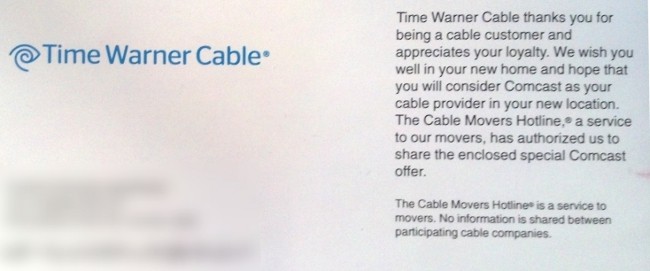![]() Cogeco Cable is cracking down on customers who shop around for a better deal.
Cogeco Cable is cracking down on customers who shop around for a better deal.
After dumping its money-losing Portuguese Cabovisao operation earlier this year, the company is looking to recoup its losses, and Canadian consumers are paying the price.
Chief Executive Louis Audet told investors Cogeco has tightened up promotions, giveaways, and credit standards to weed out bargain hunters and those who ultimately never pay their cable bill.
“If somebody else wants these undesirable customers, they’re theirs for the taking,” Audet said. “There’s too many promotion hoppers out there who are jumping from one supplier to the other.”
At least 9,000 customers left Cogeco during the second quarter, but that did nothing to hurt Cogeco’s bottom line. Profits nearly quadrupled to $81.5 million according to Audet, but much of that is due to changes in accounting related to its sold-off Portuguese operation. Closer to home, Cogeco revenue inside Canada grew 12.4% from one year ago to $345.6 million.
Cogeco bought Televisao in 2006 for $465 million. It sold it in February for just over $59 million.
Cogeco Cable, which serves subscribers in smaller cities and suburbs in Ontario and Quebec, is Canada’s fourth largest cable operator with more than 875,000 cable subscribers. Its biggest competitors are Bell (in Ontario and Quebec) and Telus, which has some landline operations on the Gaspé Peninsula in eastern Quebec.
Most of Cogeco’s promotions and retention offers appeal to customers threatening to take their business to the phone companies. But Audet signaled the promotional pricing had become so aggressive, some customers have learned to bounce back and forth between providers to maintain lower pricing indefinitely.
By tightening up customer promotions, Audet said, the company can achieve a “stable” customer base that pays regular Cogeco prices.


 Subscribe
Subscribe








